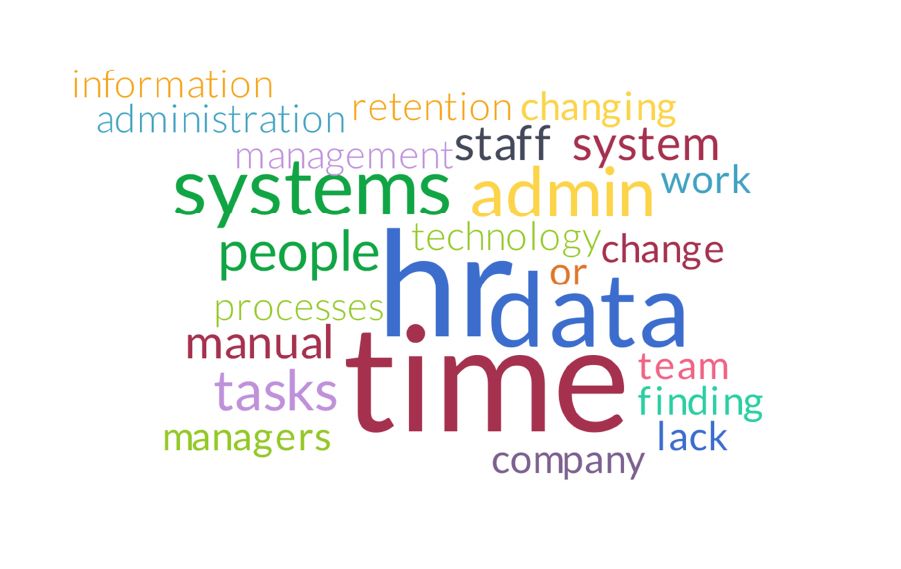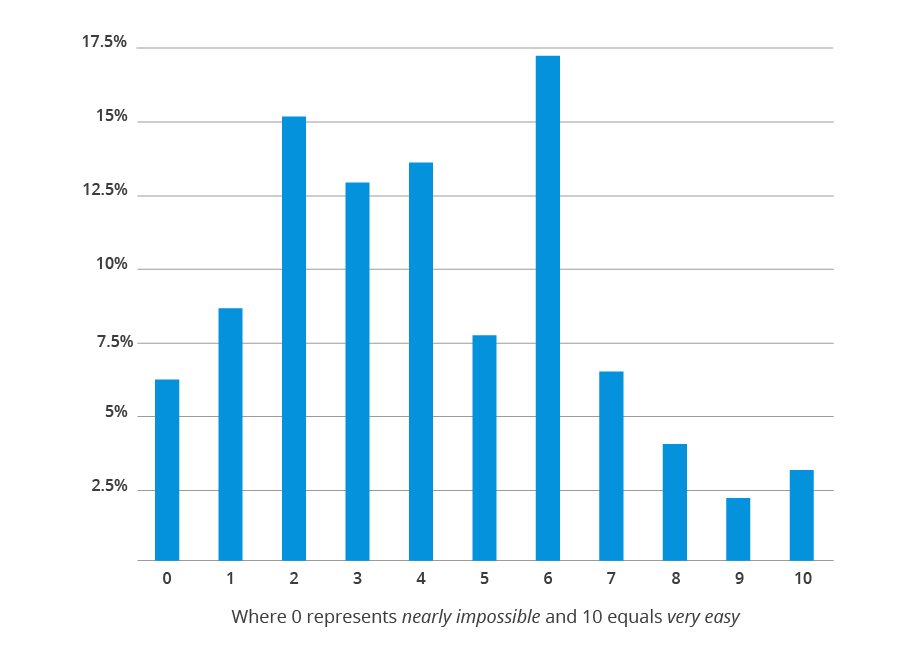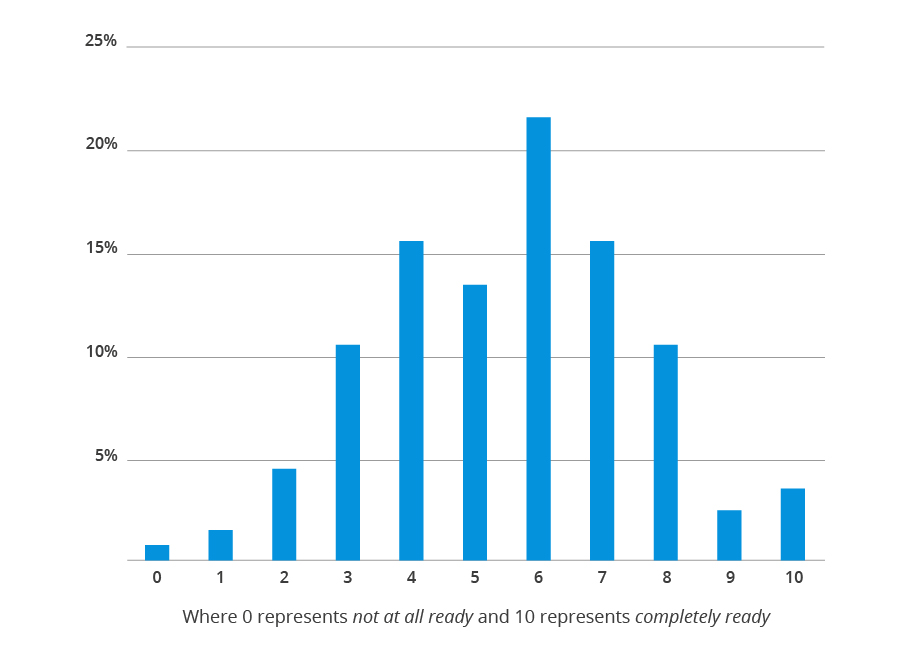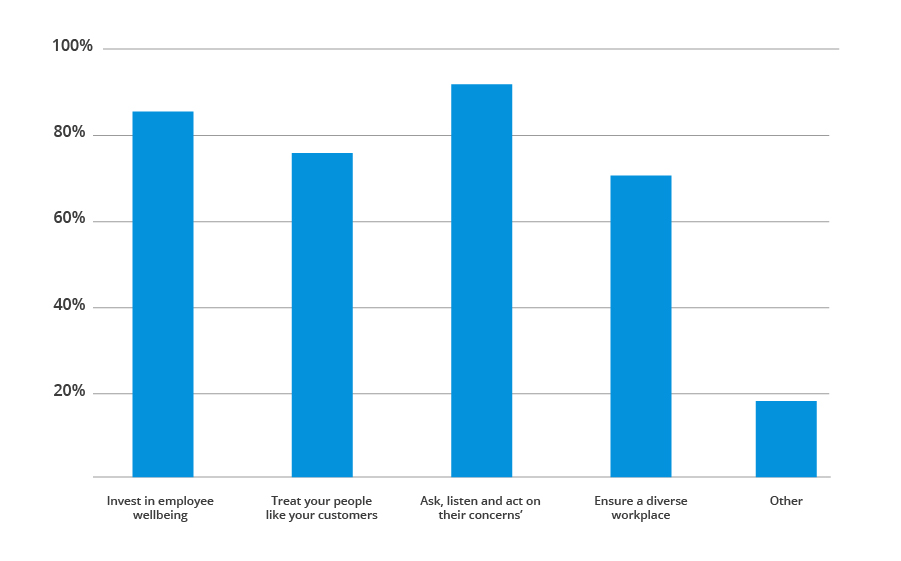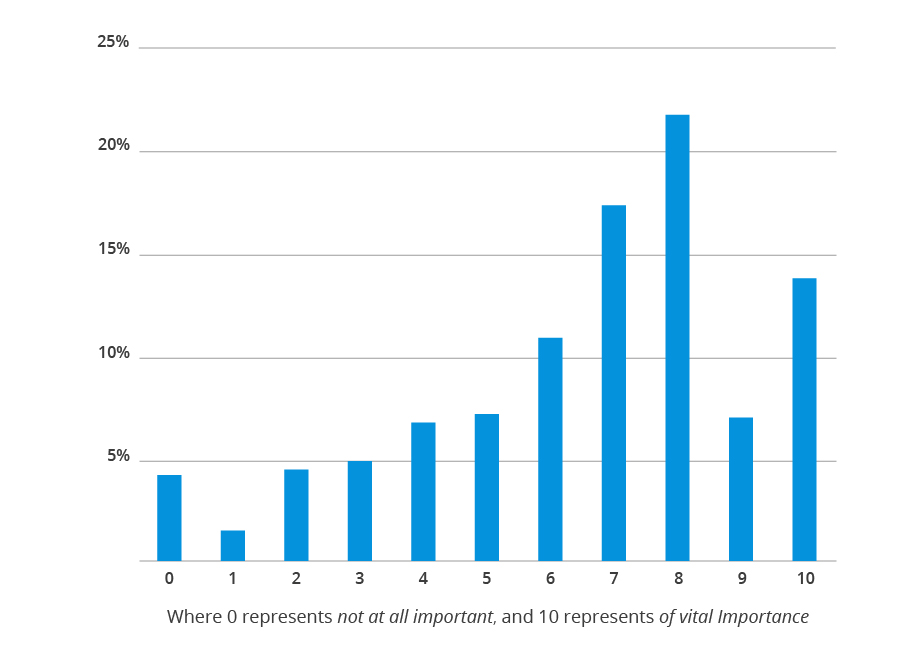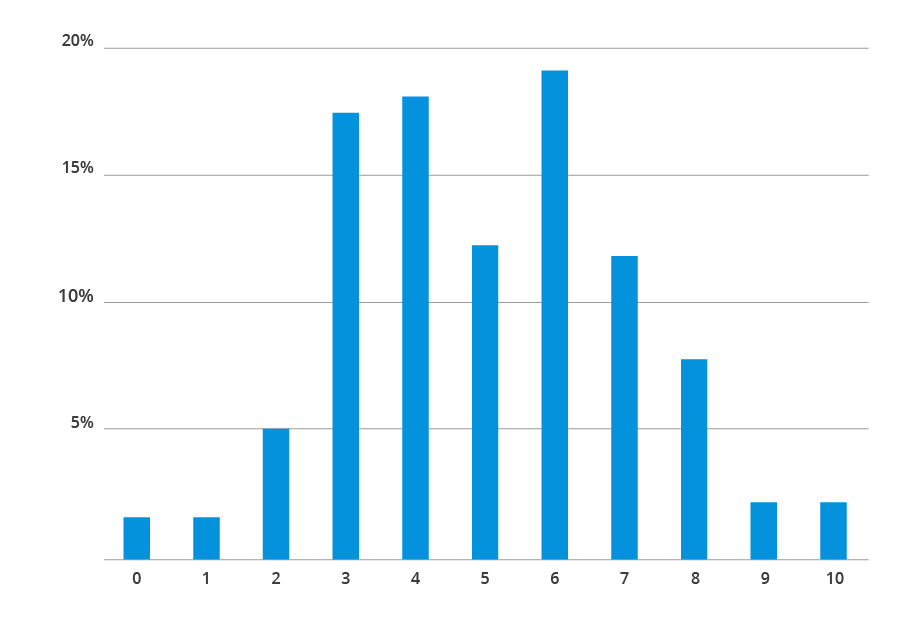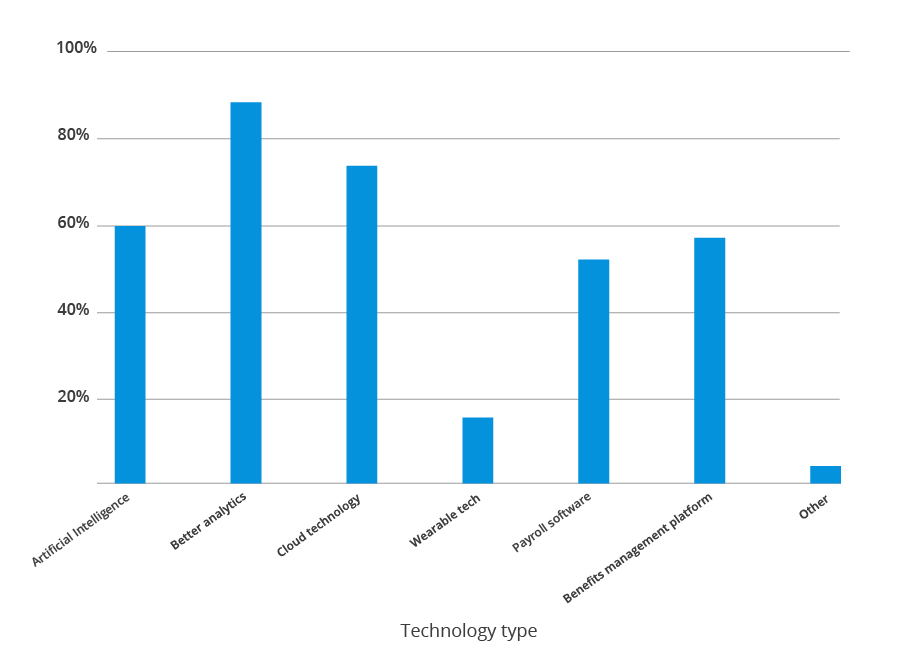An inter-generational and diverse workforce
Our changing workforce now includes Generation Z – digital natives who expect innovative technology to be offered to them at work, mirroring the level of technology they see at home. These employees – born between 1995 and 2010 – are entering the workplace and have higher expectations for technology use in their day-to-day roles. They have been familiar with the internet and technology from a young age, so demand the transformational tools that the Cloud can provide which give them greater flexibility and control, and also help to drive productivity. They are well placed to encourage and support older colleagues who are resistant to change or lacking confidence to try new tools. The HR professionals we spoke to feel fairly confident they have the tools to welcome Generation Z into the workplace.
How ready are you to accommodate an inter-generational workforce with the emergence of Generation Z?

“We need to make sure the technology employees use at work is in line with the technology they see in the rest of their life.”
So how best to get the most from this changing workforce? Certainly ensuring they feel positive about their role and the work they do is key. 92 per cent of HR professionals we spoke to said the best route to a contented workforce is to ask, listen and act on their concerns. 87 per cent agreed it was important to invest in employee wellbeing, and 75 per cent said you should treat your people as you would your customers. 70 per cent replied you need to ensure a diverse workplace.
The latest Cloud technology can allow HR teams to listen and act on employee concerns quickly and effectively, by giving easy access to information and workflows anytime, anywhere. Automating repetitive tasks frees up HR professionals’ time to invest in employee wellbeing, while flexible workflows can ensure HR teams are able to react quickly to employee feedback. Asking for but then not acting on employee feedback can leave employees even more demotivated.
In what ways can an HR department ensure a high quality employee experience?

Diversity is an important focus - success revolves around recognising and celebrating differences, ensuring everyone has the opportunity to thrive in a meritocratic workplace. A diverse range of talent at leadership level, as well as across the workforce, creates richer perspectives and a wider frame of reference. More and more candidates are now actively looking for the D&I policies and commitments when researching a potential employer.
“Our biggest challenge is finding and keeping talented people.”
